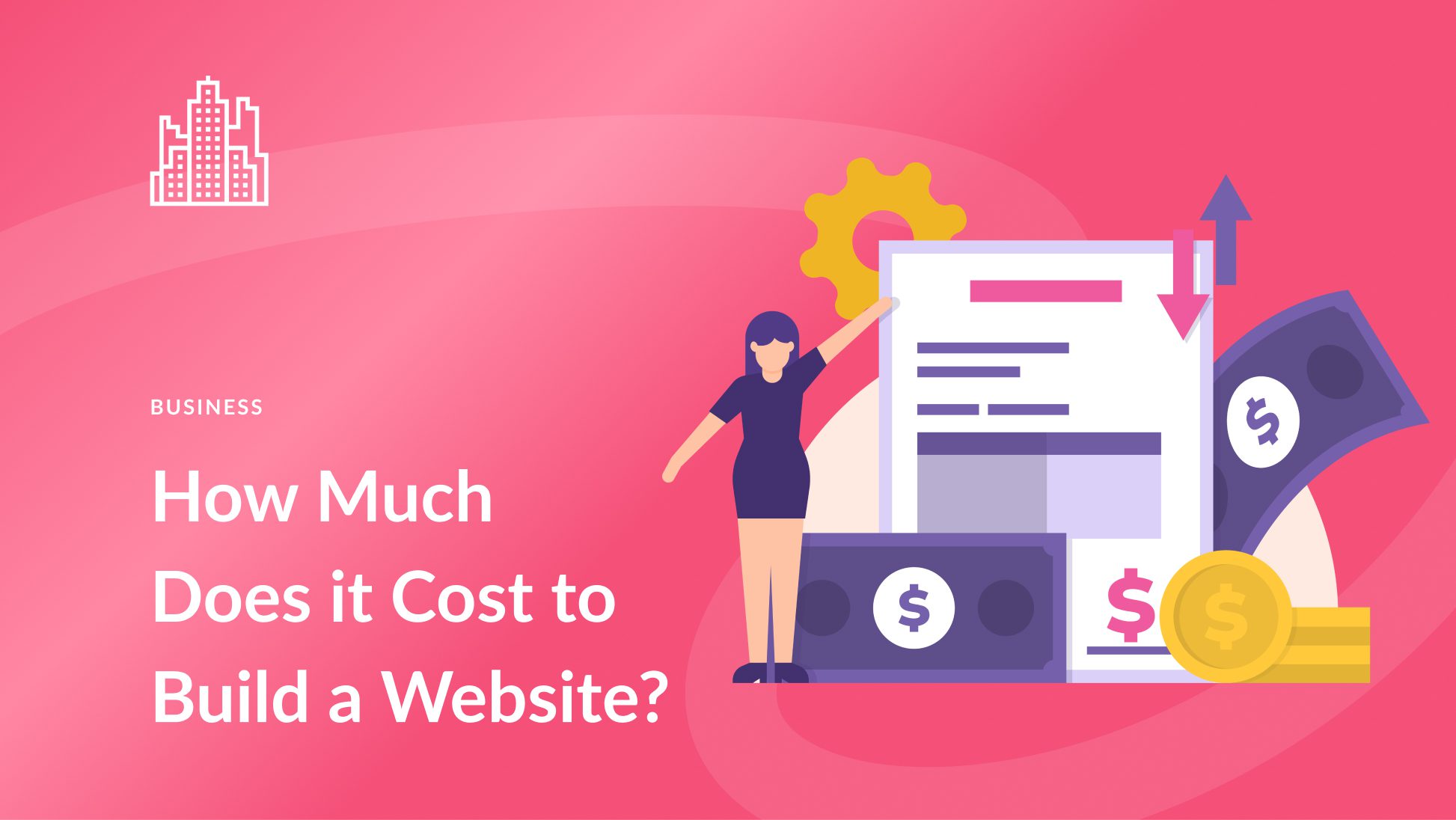Cost of Creating a Website for your small business in 2024 can be a difficult task, especially when trying to figure out the costs involved. Whether you’re a startup or an established business, having an online presence is crucial. But what does it actually cost? Let’s see.
Initial Considerations
Defining Your Needs
Before diving into costs, it’s important to understand what kind of website you need. Are you looking for a simple blog, an e-commerce platform, or a fully customised site with unique functionalities?
Type of Website
- Informational/Brochure Website
- E-commerce Website
- Custom Website
Features and Functionality
- Basic Features: Contact forms, image galleries, and basic SEO (Search Engine Optimization) elements are standard for most websites.
- Advanced Features: These might include user registration and login systems, booking systems, advanced SEO capabilities, and integrations with third-party services like CRMs (Customer Relationship Management) or email marketing tools.
Budget Planning
Creating a budget is essential. A person needs to consider both upfront costs and ongoing expenses.
Upfront Costs vs. Ongoing Costs
- Upfront Costs: These include design and development fees, domain name purchase, and initial setup costs. This is where the bulk of your spending happens initially as you establish your online presence.
- Ongoing Costs: Hosting fees, maintenance, content updates, and marketing efforts fall under this category. These costs are recurring and essential for keeping your website running smoothly and staying relevant in search engines.
Domain Name and Hosting
- Choosing a Domain Name: Your domain name is your website’s address on the internet.it should be easy to remember and should reflect your business.
- Cost of Domain Names: Domain names typically cost between $10 and $50 per year, depending on the extension (.com, .net, .org, etc.) and the registrar. Premium domains or highly sought-after names can cost significantly more.
- Web Hosting Options: It is a type of hosting, where your website lives on the internet. There are various hosting options available, each with its own cost and benefits.
Shared Hosting
Shared hosting is a web hosting service that allows multiple websites to share a single physical server. The cost of this type of hosting service is about $3 to $10 per month
Pros:
- Affordable: Shared hosting is the most budget-friendly option available, making it ideal for small websites or startups with limited budgets.
- Easy to Use: Most of the providers offer user-friendly interfaces, such as control panels, and one-click installations for popular website applications like WordPress, which makes it easy for beginners to set up and manage their websites.
Cons:
- Limited Resources: It is because multiple websites share the same server resources (CPU, RAM, bandwidth), that the performance of your site can be affected by other sites on the same server, especially if they experience high traffic.
- Slower Performance: The shared server load can lead to slower website speeds, which might affect user experience and SEO rankings.
VPS Hosting
Virtual Private Server (VPS) hosting is a type of web hosting where a physical server is divided into multiple virtual servers, each acting as an independent server environment. The approximate cost of this hosting is around $20 to $80 per month
Pros:
- More Resources: VPS (Virtual Private Server) hosting provides dedicated portions of server resources to each website, ensuring better performance and reliability compared to shared hosting.
- Better Performance: With fewer websites sharing the server, your website operations are faster and more consistent.
Cons:
- More Expensive: VPS hosting costs more than shared hosting, making it a significant step up in investment.
- Requires Technical Knowledge: Managing a VPS can be more complex and may require technical skills for tasks such as setting up the server environment, installing software, and performing maintenance.
Dedicated Hosting
Dedicated hosting is a type of web hosting where a single physical server is entirely dedicated to one user or organization. The cost of this type of hosting is about $80 to $300+ per month.
Pros:
- Full Control: In this you have complete control over the server settings and resources, allowing for extensive customisation to meet your specific needs.
- High Performance: Since the server is not shared with other websites, your site can operate at optimal performance levels, making it ideal for high-traffic websites or those with demanding resource requirements.
Cons:
- Very Expensive: Dedicated hosting is the most costly hosting option, which can be a significant investment, particularly for small businesses.
- Requires Technical Expertise: Managing a dedicated server is complex and typically requires a high level of technical knowledge or hiring a skilled professional to handle server maintenance and troubleshooting.
Cloud Hosting
Cloud hosting is a type of web hosting that uses multiple interconnected servers (a cloud) to host websites and applications. The Cost of cloud hosting is about $10 to $50 per month.
Pros:
- Scalable: Cloud hosting allows you to easily scale resources up or down based on your website’s needs, providing flexibility for growing businesses.
- Reliable: It is known for its reliability as cloud hosting can handle traffic spikes effectively, as the load is distributed across multiple servers.
Cons:
- Complex to Manage: Cloud hosting can be more complex to configure and manage compared to traditional hosting types, requiring familiarity with cloud technologies.
Website Design and Development
DIY and Professional Design
You can either build the website yourself or hire professionals, depending on your budget, time, and the quality you need.
Website Builders
The cost is about $0 to $50 per month
Pros:
- Easy to Use: It is designed for users without technical skills, website builders offer drag-and-drop interfaces and pre-designed templates.
- Templates Available: Many website builders come with a variety of templates that you can customize to fit your needs.
Cons:
- Limited Customization: The customisation option may be limited compared to a professionally designed website.
- May Not Look as Professional: Websites built with basic templates might not have the polished look of a custom-designed site.
- Can Be Challenging to Scale: As your website grows, you may find limitations in functionality and scalability.
Hiring Freelancers
The cost of hiring freelancers can vary from $500 to $5,000
Pros:
- More Customization: Freelancers can offer a higher level of customization than website builders, tailoring the site to your specific requirements.
- Professional Touch: A good freelancer can provide a professional look and feel to your website.
- Often Cheaper than Agencies: Freelancers typically charge less than web design agencies while offering comparable quality.
Cons:
- Varies Greatly in Quality: The quality of work can vary significantly depending on the freelancer’s experience and skills.
- Can be Expensive: It depends on the freelancer’s expertise and the project’s complexity, costs can add up.
Web Design Agencies
The cost can go up to $30,000
Pros:
- High-Quality: Agencies provide high-quality, comprehensive services, often involving a team of experts covering various aspects of web design and development.
- Comprehensive Services: Agencies typically offer a full range of services, from design to development to ongoing support.
- Team of Experts: You benefit from the collective expertise of a team, which can lead to a better overall product.
Cons:
- Expensive: Agencies are usually the most expensive option due to their overhead costs and the breadth of services offered.
- Longer Timelines: Projects may take longer to complete due to more extensive planning and execution phases.
- Sometimes Less Personalized Service: Larger agencies might offer less personalized service compared to individual freelancers.
Customisation and Features
Templates and Themes
A template and theme are pre-designed website layouts and styles. Templates provide a structure, while themes offer aesthetic design elements. They are important because they save time, ensure a cohesive look, and provide a professional appearance without needing extensive design skills. The cost for designing templates is about $0 to $200
Pros:
- Affordable: Pre-designed templates and themes are a cost-effective way to quickly set up a website.
- Quick Setup: Using templates allows for a faster setup compared to custom designs.
- Many Designs to Choose From: There is a wide variety of templates available to suit different industries and styles.
Cons:
- Less Unique: Templates may look similar to other websites using the same theme, making your site less distinctive.
- May Require Adjustments: To fit your brand perfectly, templates might need adjustments, which can be time-consuming or require some technical skills.
Custom Designs
Custom design refers to creating a unique and attractive website for a business’s needs and branding. It enhances user experience, reinforces brand identity, and provides advanced functionality. The cost here is $2,000 to $10,000
Pros:
- Unique: Custom designs are unique and tailored specifically to your brand and business needs.
- Tailored to Your Brand and Needs: Custom designs ensure that your website perfectly reflects your brand’s identity and provides the functionality you require.
Cons:
- Expensive: Custom designs are more costly due to the time and expertise involved.
- Longer Development Time: Creating a custom website takes longer than using a pre-designed template.
Content Creation
Writing Content
Content is king here. Your website needs well-written content to engage visitors and improve SEO.
Hiring Professional Writers
A professional content writer crafts engaging, informative, and SEO-optimized content for websites. They research, write, and edit content to attract and engage the target audience, enhancing the website’s visibility and credibility. The cost for a professional content writer can vary from $50 to $500+ per page.
Pros:
- High-Quality: Professional writers produce well-written, engaging, and polished content.
- SEO-Optimized: Experienced writers can create content that is optimized for search engines, improving your site’s visibility.
- Saves Your Time: Hiring professionals frees up your time to focus on other aspects of your business.
Cons:
- Expensive: Professional writing services can be costly.
- Depends on Writer’s Expertise: The quality of content depends on the writer’s understanding of your business and their writing skills.
Multimedia Content
Multimedia content refers to using various forms of media such as images, videos, audio, and interactive elements on a website. It enhances user engagement, conveys information effectively, and makes the website more visually appealing. The multimedia content professional costs about $0 to $500+ per image.
Pros:
- Enhances Visual Appeal: High-quality images and graphics make your website more visually appealing.
- Professional Look: Professional images give your site a polished and credible appearance.
Cons:
- Can be Expensive: High-quality images and custom graphics can be costly.
- Licensing Issues: Ensure images are properly sourced and licensed to avoid legal issues.
SEO and Marketing
On-page SEO is essential for website visibility. Keyword research, costing $0 to $100+ monthly, drives targeted traffic and improves SEO. Meta tags, often included in SEO services, enhance click-through rates and are crucial for SEO. Off-page SEO, like link-building and social media marketing, boosts website authority and visibility. Link-building, costing $100 to $1,000+ monthly, acquires hyperlinks to improve site credibility and authority.
Pros of on-page SEO: Drives targeted traffic, improves SEO rankings, and enhances click-through rates.
Cons: Requires continuous effort, and needs regular updates.
Pros of off-page SEO: Boosts website authority and visibility.
Cons: Costly investment, time-consuming process.
Social Media Marketing
Social media marketing involves promoting products or services on social media platforms to reach and engage with potential customers. It includes creating and sharing content, running ads, and interacting with users to build brand awareness and drive website traffic. The cost can vary from $0 to $2,000+ per month
Pros:
- Increases Engagement: Social media helps you engage with your audience and build a community around your brand.
- Drives Traffic: Effective social media marketing can drive significant traffic to your website.
- Enhances Brand Presence: Maintains and enhances your brand’s presence and visibility online.
Cons:
- Time-Consuming: Requires consistent effort and strategy to maintain an active and engaging social media presence.
- Requires Strategic Planning: Successful social media marketing involves careful planning and execution.
E-commerce Functionality
Setting Up an Online Store
Setting up an online store involves creating a digital platform where businesses can showcase and sell their products or services over the Internet. This includes building a website or utilising an e-commerce platform, adding product listings, setting up payment gateways, and configuring shipping options. If you’re selling products or services online, you’ll need e-commerce capabilities.
E-commerce Platforms
The cost is approximately $29 to $299 per month
Pros:
- Built-in Features: E-commerce platforms come with features like product listings, shopping carts, and payment processing.
- Easy to Manage: Designed to be user-friendly, these platforms simplify the process of managing an online store.
- Handles Payments and Product Listings: Platforms typically handle payment processing and allow you to list and manage your products efficiently.
Cons:
- Subscription Costs: Monthly fees can add up, especially for premium plans.
- Platform Limitations: Some platforms may have limitations in terms of customisation and scalability.
Payment Gateways
Payment gateways are online platforms that facilitate the secure processing of electronic transactions, allowing businesses to accept payments from customers via credit/debit cards, digital wallets, or other online payment methods. The cost of Transaction fees is 2.9% + $0.30 per transaction on average
Pros:
- Secure Transactions: Payment gateways ensure secure transactions, protecting customer data.
- Supports Multiple Payment Methods: Most gateways support various payment methods, providing convenience for customers.
Cons:
- Fees Add Up: Transaction fees can accumulate, impacting your profit margins.
- Integration Complexity: Depending on your platform, integrating a payment gateway can be complex and may require technical assistance.
Security Measures
Cost: $50 to $500+ per year
Pros:
- Protects Customer Data: It is essential for safeguarding customer information and building trust.
- Builds Trust with Users: A secure website reassures users, encouraging them to interact and transact.
Cons:
- Additional Cost: The Security measures add to your overall website expenses.
- Requires Ongoing Management: The security needs to be continuously monitored and updated to remain effective.
Cost of Creating a Website for a small business in 2024 involves various costs, ranging from a few hundred to several thousand dollars. While it might be tempting to cut corners, investing in a quality website is crucial for your business’s success. Whether you opt for a DIY approach or hire professionals, ensure your website meets your business needs and provides a great user experience.






